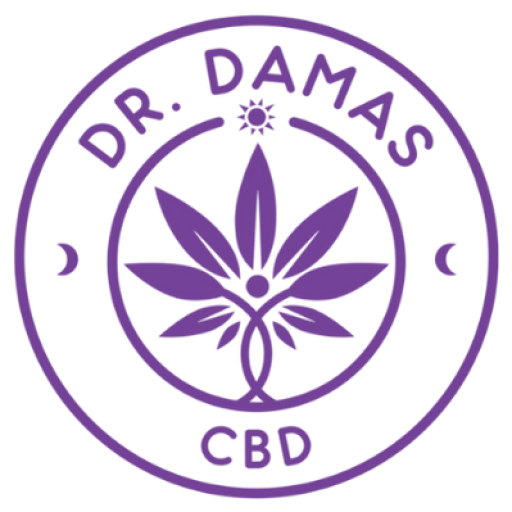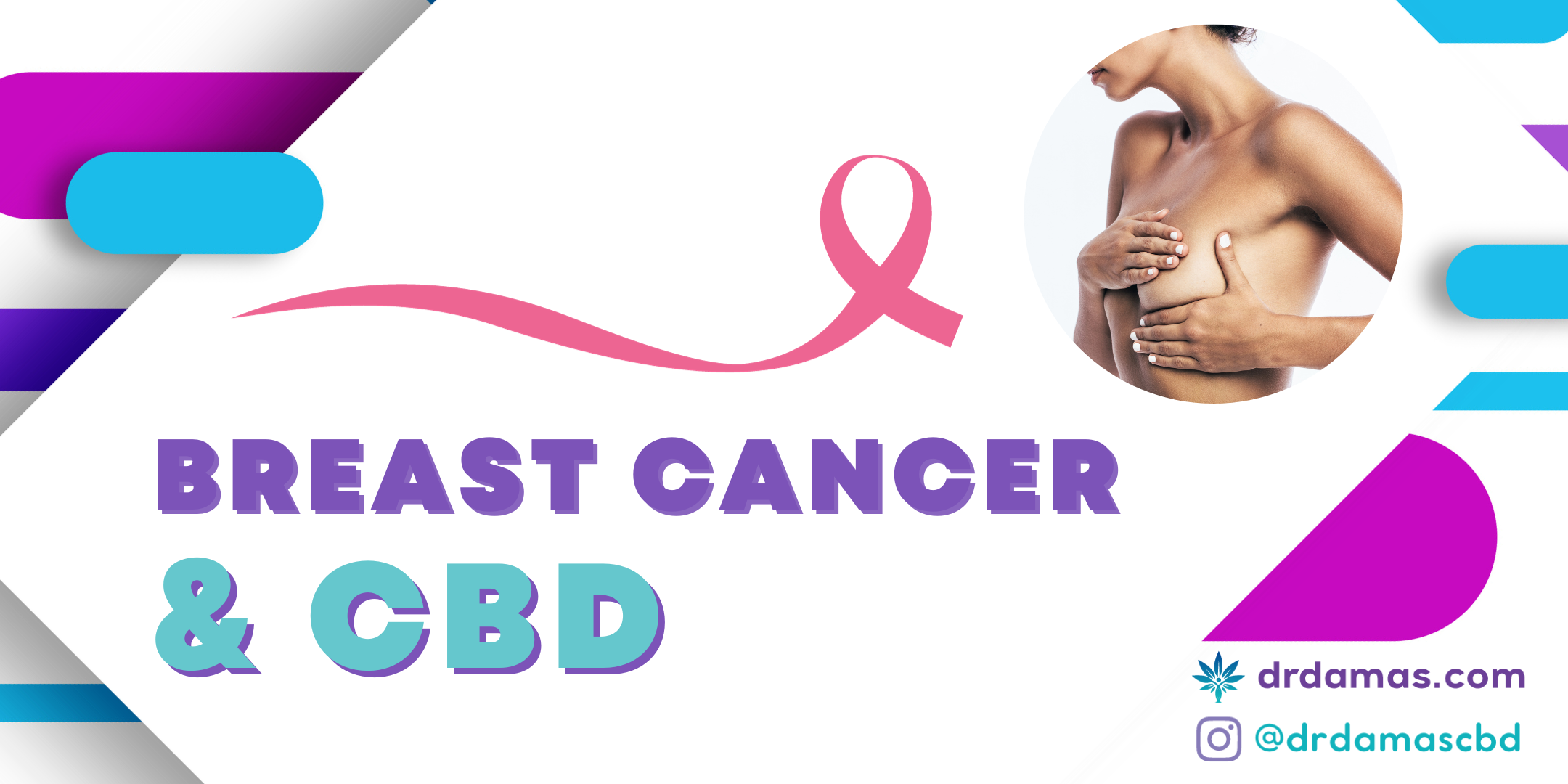My family, like millions of others throughout the world have lost a mom, a sister, a wife and many others to breast cancer. Losing my mother to breast cancer is the reason I’m a physician. I remember the feeling of powerlessness especially because we knew so little about the disease. We learned as we went along. We tried both western (oncologists) and holistic (naturopaths) doctors, chemotherapy as well dietary changes and a whole lot of prayer (a lot of that lol). None of it worked, because by the time the cancer was discovered it was stage 4 and had metastasized to her lungs. This post will give you a good brief breakdown of a very heavy subject in the typical way we do things, ending with a discussion of CBD and cannabis but the one thing you should remember is that early detection is the best indicator of good outcomes. Do self exams and get screenings regularly.
Understanding Breast Cancer: The Basics
Breast cancer, like all cancers, begins when cells in the breast tissue start to grow uncontrollably. This often results in the formation of a lump or tumor. It is important to note that not all breast tumors are cancerous. The two main types of breast cancer are ductal carcinoma in situ (DCIS) and invasive breast cancer. DCIS is non-invasive, while invasive breast cancer has the potential to spread to other parts of the body.
Key Statistics:
- According to the World Cancer Research Fund, breast cancer is the most common cancer among women, with approximately 2.3 million new cases diagnosed in 2020.
- Globally, breast cancer accounts for 11.7% of all cancer cases, making it a significant public health concern.
Breast Cancer in African American Women:
Breast cancer is a significant health concern among African American women in the United States. Statistics reveal that African American women have a slightly lower overall incidence of breast cancer compared to white women, but they experience higher mortality rates. This discrepancy can be attributed to various factors, including disparities in healthcare access, socio-economic status, and a higher prevalence of aggressive forms of breast cancer. Additionally, cultural beliefs and historical mistrust of the healthcare system have contributed to delayed screenings and diagnosis among some African American communities. To address these disparities, efforts are underway to increase breast cancer awareness, improve access to early detection services, and provide culturally sensitive education to empower African American women in their breast health journeys.
Male Breast Cancer
While breast cancer is primarily associated with women, it can also affect men, although it is comparatively rare. Male breast cancer accounts for less than 1% of all breast cancer diagnoses. Despite its rarity, it's essential to recognize the unique challenges that men with breast cancer face. Male breast cancer is often diagnosed at a later stage because men are less likely to consider breast changes or lumps as a potential health concern. Similar to female breast cancer, the most common type in men is invasive ductal carcinoma. Early detection through breast self-exams and clinical screenings is critical for improving outcomes in male breast cancer cases. Though the journey may be less common, men with breast cancer find strength and support through advocacy groups and healthcare providers, emphasizing that breast cancer awareness and education should extend to all individuals, regardless of gender.
Traditional Breast Cancer Treatments
Traditional breast cancer treatments have come a long way, offering remarkable advances in terms of effectiveness and patient outcomes. However, they also have their drawbacks.
Pros of Traditional Treatments:
1. **High Success Rates**: Surgery, chemotherapy, radiation therapy, and hormone therapy have proven effective in treating various stages of breast cancer, increasing survival rates significantly.
2. **Clinical Evidence**: Extensive research and clinical trials support the efficacy of these treatments.
3. **Customization**: Treatment plans can be tailored to the individual, taking into account factors such as the stage and type of breast cancer.
Cons of Traditional Treatments:
1. **Side Effects**: Chemotherapy and radiation therapy often cause side effects like nausea, fatigue, and hair loss.
2. **Impact on Quality of Life**: Treatment regimens can be physically and emotionally draining.
3. **Risk of Recurrence**: While traditional treatments can be highly effective, there is always a risk of cancer recurrence.
Holistic Approaches to Breast Cancer
Holistic treatments for breast cancer have gained popularity in recent years, emphasizing the importance of addressing the whole person, not just the disease.
Pros of Holistic Approaches:
1. **Emotional Support**: Holistic therapies often focus on improving mental and emotional well-being, which can be crucial for cancer patients.
2. **Reduced Side Effects**: Some holistic approaches, like acupuncture and meditation, may help alleviate side effects of traditional treatments.
3. **Lifestyle Changes**: Holistic approaches encourage healthy lifestyle changes that can enhance overall well-being.
Cons of Holistic Approaches:
1. **Lack of Scientific Evidence**: Many holistic treatments lack rigorous scientific validation, which can make it challenging to assess their effectiveness.
2. **Not a Replacement**: Holistic therapies should complement traditional treatments, not replace them. Relying solely on holistic approaches can be risky.
3. **Costs**: Some holistic treatments can be expensive and may not be covered by insurance.
CBD and Breast Cancer: Exploring the Potential Benefits
CBD (cannabidiol) is a non-psychoactive compound derived from the cannabis plant. While research is ongoing, there is growing interest in the potential of CBD in cancer care.
CBD and Breast Cancer: The Research
- In vitro and animal studies have shown promising results regarding the effects of CBD on breast cancer cells. For example, a study published in the "Molecular Cancer Therapeutics" journal in 2011 demonstrated that CBD inhibited the growth of breast cancer cells in a laboratory setting.
- Another study published in "Breast Cancer Research and Treatment" in 2019 found that CBD enhanced the effectiveness of a common breast cancer medication, tamoxifen, in mice.
Potential Benefits of CBD for Breast Cancer Patients
1. **Pain Management**: CBD may help alleviate cancer-related pain and discomfort.
2. **Anxiety and Depression**: Many breast cancer patients experience anxiety and depression, and CBD has shown potential in reducing these symptoms.
3. **Nausea and Vomiting**: CBD may help mitigate the nausea and vomiting associated with chemotherapy.
4. **Sleep Disturbances**: Breast cancer patients often struggle with sleep disturbances, and CBD may promote better sleep quality.
5. **Intimacy**: Breast cancer patients can incorporate CBD into their intimate experiences in order to make them more enjoyable and fulfilling.
How to Use CBD for Breast Cancer Support
- If you are considering using CBD to complement your breast cancer treatment, consult your healthcare provider first. They can provide guidance tailored to your specific situation.
- CBD products come in various forms, such as oils, capsules, and topicals. The appropriate form and dosage will depend on your individual needs and preferences.
- Ensure that you choose high-quality CBD products from reputable manufacturers, as product quality can vary significantly.
Rick Simpson Oil
Rick Simpson Oil (RSO), also known as Phoenix Tears and by other names, is a highly concentrated cannabis oil that has piqued the interest of many, particularly cancer patients seeking alternative treatments. Named after its advocate, Rick Simpson, who shared his personal experience using RSO to combat skin cancer, this oil has offered hope to countless individuals. However, it's essential to acknowledge that while there are numerous anecdotal stories of RSO helping cancer patients, scientific evidence regarding its effectiveness in treating cancer, including breast cancer, is still limited and inconclusive.
Like many other potential cannabis treatments, it's a subject that requires more research and clinical trials to establish its safety, appropriate dosages, and genuine therapeutic potential. If you’re considering using RSO, you should consult with your healthcare professionals and exercise caution, as it may interact with other treatments and medications.
Take Home Points:
Breast cancer can be a challenging journey, but it's important to approach it with optimism and a well-informed perspective. Traditional treatments have made significant strides in improving survival rates, while holistic approaches can provide valuable support for emotional and physical well-being.
As research continues to explore the potential benefits of CBD in breast cancer care, it is important to always consult with healthcare professionals to make informed decisions about incorporating CBD into your treatment plan. Remember early detection is the best chance at a good outcome and get regular preventative care.
References:
1. World Cancer Research Fund. (2020). Breast cancer statistics. [Link](https://www.wcrf.org/dietandcancer/cancer-trends/breast-cancer-statistics)
2. McAllister, S. D., & Soroceanu, L. (2015). Desprez, P. Y., & Molecular Cancer Therapeutics. Inhibition of breast cancer cell proliferation and metastasis by the cannabinoid delta-9-tetrahydrocannabinol (THC). [Link](https://pubmed.ncbi.nlm.nih.gov/25916739/)
3. Ali, S. A., Sharma, A., Kaur, A., Dhingra, N., & Sharma, A. (2019). Breast Cancer Research and Treatment. Enhanced inhibition of breast cancer cells by combination of tamoxifen and CBD. [Link](https://pubmed.ncbi.nlm.nih.gov/31346716/)















